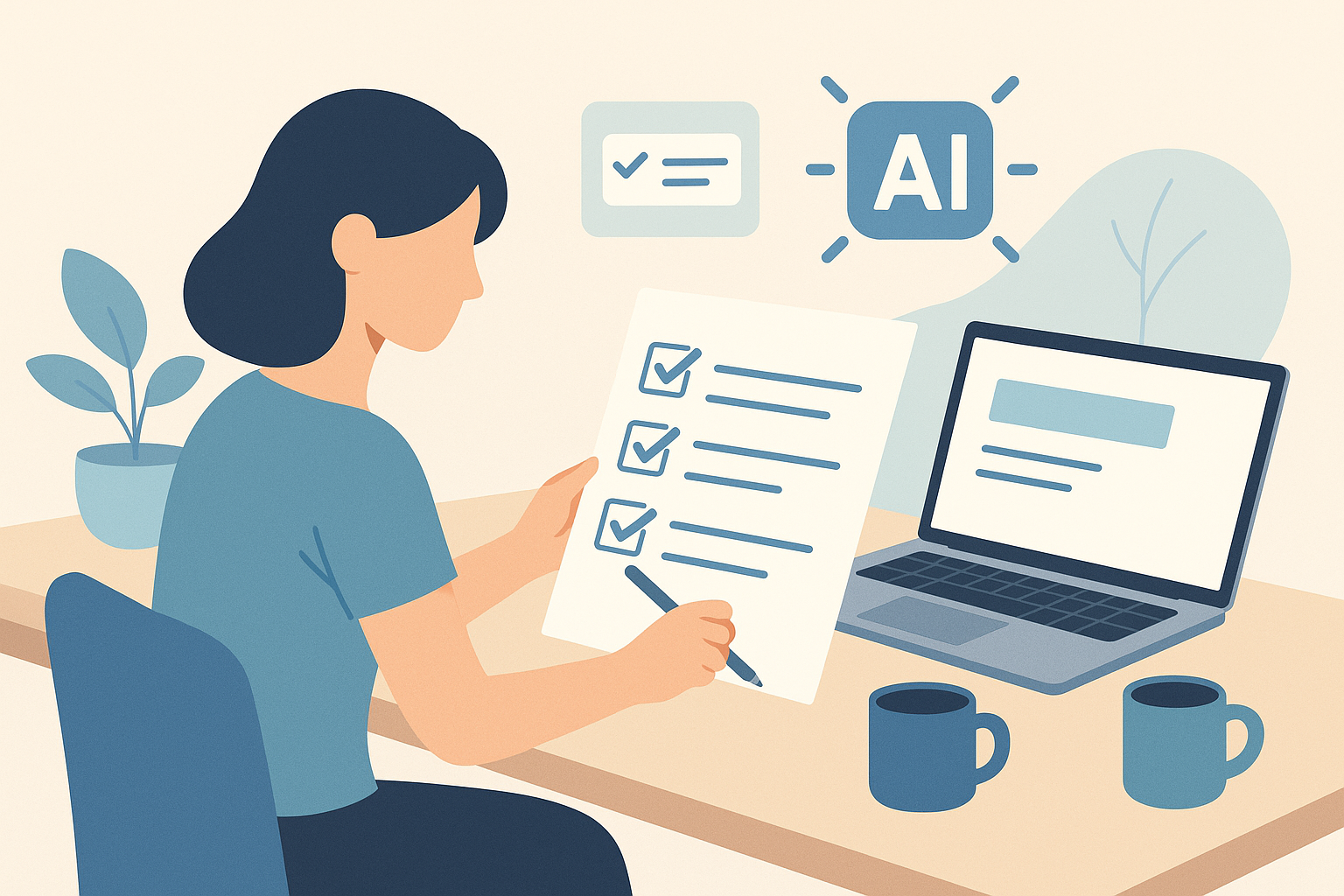Do I Really Need a Task Manager? (Yes—Here's Why)

If you've ever bounced between tabs, forgot a follow-up, or ended the day wondering "what did I actually do?", you're bumping into the limits of human memory and modern work chaos. A good task manager isn't a "nice to have"—it's how you reclaim focus, finish more of the right work, and feel in control.
Below is a clear, research-backed way to decide—and how Self-Manager.net fits in.
The problem a task manager solves (in plain English)
- Your attention window is tiny. On screens, our focus shifts roughly every 47 seconds. That makes it hard to hold priorities in your head and still do deep work.
- Memory decays fast. Without reinforcement, we forget a surprising amount of details—the classic "forgetting curve" has been replicated across time. Externalizing tasks counters this.
- The brain loves offloading. Writing tasks down and making concrete plans reduces mental load and helps you progress.
- Work is fragmented. Knowledge workers lose meaningful time to "work about work," app-hopping, and searching for info—time that a single organized system can claw back.
Quick self-check: Do you need a task manager?
You probably do if at least 3 of these are true:
- You re-read the same DMs/emails to remember next steps
- You keep "urgent" in your head (and it feels heavy)
- You often start a day without 3–5 clear priorities
- You do multi-tool juggling (docs/spreadsheets/notes/chat) to manage work
- You forget small, critical follow-ups or status checks
- You plan, but don't review—so weeks feel "busy" but not "effective"
What a task manager should give you (non-negotiables)
- Capture (zero friction) → add tasks from anywhere, instantly
- Clarity (priorities & dates) → see today, this week, what's blocked
- Context (notes, files, comments) → one place for "what" and "how"
- Review (rhythms) → daily and weekly feedback loops
- Focus (reduce switching) → fewer apps, fewer decisions, more doing
Why these matter: attention is scarce, memory fades, and context switching is costly. A single, date-centric system restores focus and momentum.
Why Self-Manager.net stands out
Self-Manager is built around getting real work finished, not just collecting to-dos.
Date-centric planning that mirrors real life
See Today, This Week, and upcoming commitments at a glance—so priorities are obvious.
AI that turns activity into insight
Automatic daily/weekly AI summaries condense tasks, comments, and notes into what changed, what's done, and what needs attention next—perfect for reviews and status updates. (This leverages cognitive offloading: you capture; the system does the heavy lifting.)
Fast capture, fast recall
Add tasks in seconds; search across tasks, notes, and projects when you need them. (Less time "looking for things," more time doing them.)
Fewer tools to juggle
Centralize tasks, notes, comments, and reviews—cutting back on app-hopping and "work about work."
Made for solos and small teams
Collaborate without complexity. Keep context with each task so handoffs are clean and progress is visible.
A simple way to start (and stick with it)
- Dump your brain → Spend 10 minutes capturing everything (personal + work).
- Pick today's 3 → Choose three outcomes that would make today successful.
- Time-box one deep block → Protect 60–90 minutes for the hardest thing.
- Close the loop → End the day with a 2-minute review; on Fridays/Sundays, read your AI summary and queue next week's top 3. (Plan-making reduces mental residue and anxiety.)
Objections, answered
"I already use notes/spreadsheets."
Notes store information; task managers drive action with dates, status, and review rituals. You can reference notes from tasks without losing momentum.
"Pen & paper works for me."
Great for capture! But digital wins for search, reminders, collaboration, and AI summaries—especially once volume grows or you work with others.
"I don't want more admin."
The right system reduces admin by centralizing context and automating reviews—less thinking about work, more doing.
Bottom line
If your days feel fragmented, your brain is doing too much clerical work. A task manager is how you protect attention, extend memory, and convert plans into finished work—and Self-Manager.net is designed for exactly that: date-first planning, blazing-fast capture/search, and AI reviews that keep you moving.
Try Self-Manager.net and give it one focused week: capture everything, pick today's three, and let the AI summarize your progress. You'll feel the difference by next Sunday.
Key Takeaways
- Attention spans on screens shift every ~47 seconds—task managers protect focus
- Memory decays without reinforcement—externalizing tasks counters this
- Writing tasks down reduces mental load and improves progress
- A good task manager needs: capture, clarity, context, review, and focus
- Self-Manager.net offers date-centric planning with AI-powered insights
- Start with a brain dump, pick 3 daily priorities, and review regularly
- Digital task managers excel at search, reminders, collaboration, and AI summaries
Ready to Reclaim Your Focus?
Experience Self-Manager.net's 7-day free trial—no credit card required. See how date-centric planning, fast capture, and AI summaries can transform your workday from fragmented to focused.
Simple pricing: $5/month Individual or $20/month Team with unlimited collaborators.

AI Powered Task Manager
Plan smarter, execute faster, achieve more
Create tasks in seconds, generate AI-powered plans, and review progress with intelligent summaries. Perfect for individuals and teams who want to stay organized without complexity.
Get started with your preferred account